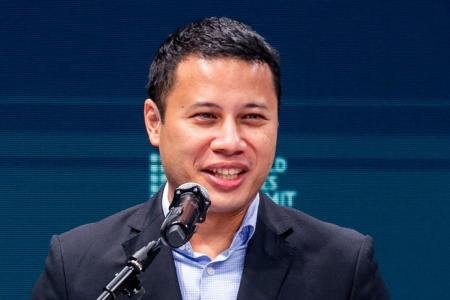Singapore to relook long-term approach to land use: Desmond Lee
As Singapore moves towards more remote working arrangements, issues such as how much office space is needed have to be relooked, said National Development Minister Desmond Lee.
More broadly, the country has to review its approach to land use and city planning as the Covid-19 pandemic has impacted many aspects of the way people live, work and play, he added yesterday.
Public engagement for Singapore's long-term plan will start next month, he said in a speech at the World Cities Summit.
The long-term plan is reviewed every 10 years and guides Singapore's development over the next 50 years and beyond.
Mr Lee said Covid-19 has also highlighted the importance of being adaptable in city planning, and for land-scarce Singapore to have land that can be easily converted to other uses.
"The pandemic has shown that we also need to buffer some 'white space' that can be quickly adapted for emergencies."
He cited former schools and convention centres that were converted into quarantine and community care facilities, as well as community centres that were first used to distribute masks and TraceTogether tokens and are now functioning as vaccination centres.
Another important takeaway is the need to keep cities liveable and connected, he added.
"The pandemic has kept people within the city but away from crowded urban and indoor areas. Parks and green spaces have thus become important places for many Singaporeans to seek respite and recreation."
And digital connectivity has been vital to allow people to continue working and learning - including with overseas partners, he added, citing the summit as an example.
The summit, which ends tomorrow, is being held in a hybrid format, taking place online and in person at the Sands Expo and Convention Centre.
A key theme was how cities can adapt to a world disrupted by the pandemic.
In his speech, Mr Lee said Covid-19 has also shown the importance of trust throughout society, which he added is maintained through regular and transparent communication.
"An effective pandemic response requires citizens to make sacrifices, which they will only accept if they trust that these are for the greater good," he explained.
"Trust is hard to build but easy to lose. And a crisis can easily divide a society if everyone only looks out for themselves."
In addition, both government leadership and active community involvement are important. While governments are needed to coordinate efforts, the community is the "glue" that holds people together and provide "last mile support".
The pandemic may also worsen social inequalities as certain parts of the economy resume strong growth while others lag behind, Mr Lee said.
But he cheered the rise of community initiatives that have seen Singaporeans step forward to lend a helping hand.
He said: "This spirit of mutual support is the kind of social DNA that we want to encourage even after the pandemic."
Get The New Paper on your phone with the free TNP app. Download from the Apple App Store or Google Play Store now



